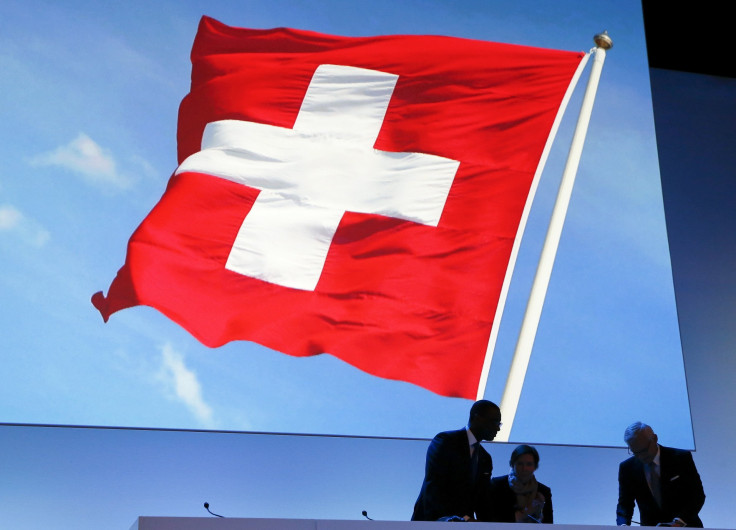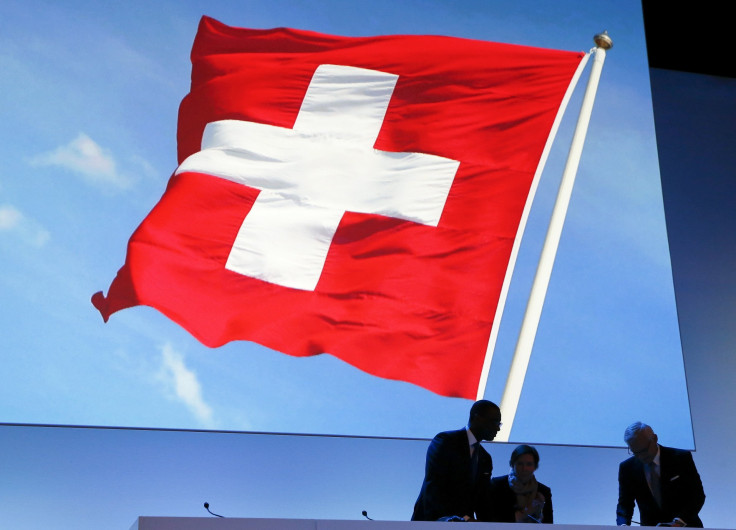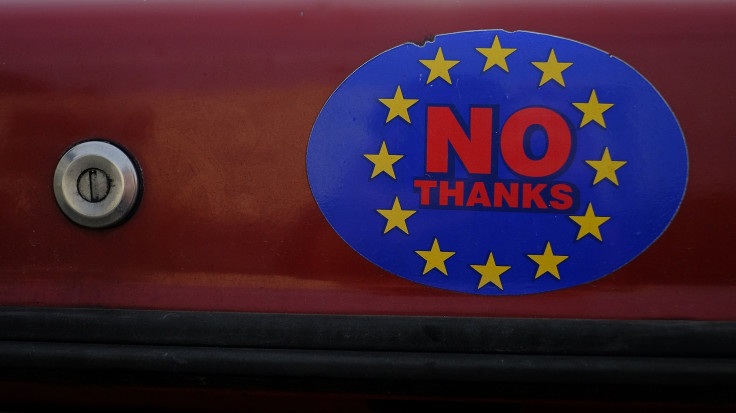Panicky Investors Drive Swiss Bond Yield Into Negative Territory, Send Gold Soaring

Global investor fears, growing for months for a variety of reasons, Thursday drove the yield on Switzerland’s ultrasecure 30-year bond into negative territory for the first time. Gold, for similar reasons, extended what is now a six-month rally to more than 24 percent.
Since bond yields, what investors get for holding an IOU, move in the opposite direction of bond prices, a falling yield signals a rising price, something that happens when investors increase bond buying. Global markets were stunned Thursday when the yield on Switzerland’s long bond tumbled to less than 0 percent. In other words, investors are now so hungry for the perceived safety of a Swiss government IOU, they will pay Switzerland to hold their money.

Chief among this week’s financial fear factors is the apparently growing likelihood British citizens will vote in one week to leave the 28-nation EU.
“The latest opinion polls indicate increased support for the ‘leave’ camp with only a few days left ahead of the U.K. referendum regarding membership in the EU,” said Lefteris Farmakis of UBS Global Macro Strategy. “Despite differences in the underlying methodology and reporting, both online and phone polls confirm this shift over the last two weeks or so. In the absence of other significant global macro developments, this new information has almost single-handedly moved global markets along the broad dimensions we described in our research.
In addition, investors worry about the moribund growth of both the EU and Japanese economies and weak industrial production in the U.S.
"[U.S. industrial] Capacity utilization, which is seen as a coincident or leading economic indicator, fell further in May, which is a cause for concern," Makoto Yamashita, a Deutsche Bank strategist.
Also driving down European government bond yields is a so-called quantitative monetary easing policy, essentially a massive money printing project that aims to spur economic growth. Finally, there are chronic worries about China’s economy, still growing but laboring under a massive debt over which Beijing does not appear to have full control.

The possibility Britain will vote to leave the EU has not only driven up the price of bonds issued by economically strong nations, like Germany, Switzerland and the United States, but it has lit a fire under gold prices. Since Dec. 17, when the price of gold was $1,048.30 per ounce, the price has climbed more than 24 percent to $1,307.40 — a more-than 24 percent gain.
James Steel, chief precious metals analyst at HSBC Securities, said if Britain votes to leave the EU, the yellow metal could hit $1,400.
“Gold has historically traded as a safe haven asset and, as such, is likely to react to the results of the 23 June U.K. referendum on EU membership,” he said in a note. “The uncertainty spurred by an exit vote would likely elicit sufficient gold purchases to buoy prices. The link is the interconnection between the gold market and wider financial markets. In periods of uncertainty, gold is often one of the few liquid perceived safe haven assets. It is also historically negatively correlated with risk-on assets.”
© Copyright IBTimes 2024. All rights reserved.





















